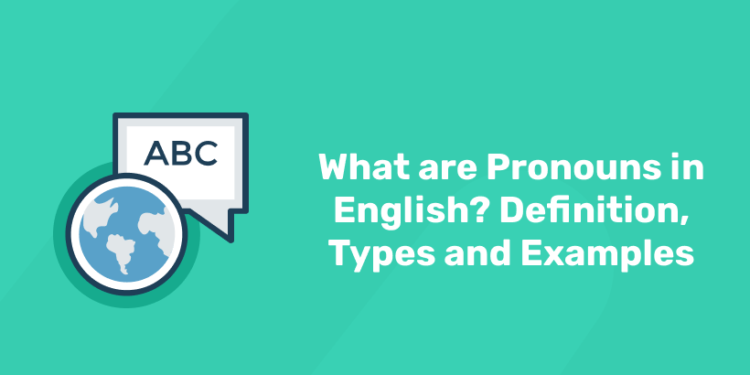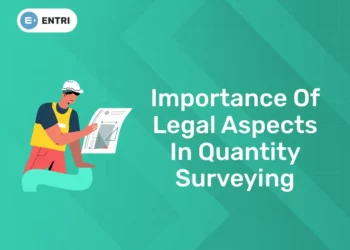Table of Contents
Pronouns are words that are used instead of nouns. Pronouns in English are used to refer back to people or things which are already mentioned in a sentence. It is used to avoid repetition of the noun.
For example, you may say, “I have a cat. She is cute”. You just mentioned your cat in the first phrase, so there’s no need to explicitly state that you’re describing her in the second. However, saying “cute” after “I have a cat” is grammatically incorrect. Instead, you use the pronoun “she is” to make the phrase “cute” into a complete sentence.
Speak confidently and fluently with our Spoken English Course!
What are Pronouns in English?
The term “pronoun” refers to a word or phrase that is used to replace a noun or noun phrase, also referred to as the “pronoun’s antecedent.” Pronouns are one of the sentence’s basic building blocks since they are short words that can perform all of the functions of nouns. He, she, you, me, I, we, us, this, them, and that are examples of common pronouns.
A pronoun can take the place of any person, place, animal, or thing and can function as a subject, direct object, indirect object, object of the preposition, and more. As a result, coffee becomes it, Mary becomes she, George becomes he, the team becomes they, and the phrase Mary drinks a cup of coffee every afternoon could also be changed to Mary drinks a cup of it every afternoon or even to Mary drinks it every afternoon, where it would replace both the cup of coffee and the coffee itself.
Without pronouns, we would be forced to repeat nouns all the time, which would be tedious and repetitious in both our speech and writing. Mary enjoys a cup of coffee every afternoon without pronouns, preferring to have it before dinner. Every afternoon, Mary has a cup of coffee, which she prefers to take right before dinner. Pronoun use improves sentence flow and adds interest to sentences.
- It
- He
- You
- I
- They
- We
- Who
- Him
- Them
- Whoever
- Anyone
- Something
- Nobody
The following sentences’ pronoun samples are highlighted for easy recognition.
Example:
- Alex, Kate, and I were playing poker with friends -> We were playing poker with friends.
- Tina loves watching movies. -> She loves watching movies, especially if they are comedies.
- Will Thomas be going to the circus with Sarah? -> Will he be going there with her?
Pronouns can act in place of some adverbs, adjectives, and other pronouns as well as nouns, as was already mentioned. Pronouns can be used almost whenever you refer to a person, animal, place, or item to add intrigue and improve the flow of your speech or writing.
A pronoun must always come after an expression known as an antecedent. Essentially, this means that a pronoun can only be understood in the context of knowledge about the noun. An antecedent, like as the person’s name, is typically provided first because, for instance, if the pronoun she is used in a phrase, we can only understand it if we know who she is. In the example above Mary drinks a cup of coffee every afternoon, if we had never mentioned Mary or what she drinks, it would be unclear if we said, she drinks it every afternoon. Your reader would be confused and wonder who she is and what does she drink, water, lemonade?
Once Mary has been mentioned, we would use the pronouns she and her later in the writing in order to stop repeating the proper noun Mary and possessive proper noun Mary’s.
Mary went to the restaurant for breakfast with her (Mary’s) friends. She (Mary) was very hungry, but her (Mary’s) friends would not stop chatting. Eventually, Mary decided to take matters into her (Mary’s) own hands and she (Mary) demanded that they (Mary’s friends) stop talking.
Imagine how that line would sound if Mary and Mary’s kept appearing. The use of pronouns has helped to tighten and, arguably, make the prose much more elegant. This is merely a simple illustration of how to utilise pronouns; they may be used in a variety of ways to improve the clarity and vitality of writing and speaking.
Start speaking English like a native with our comprehensive course.
Different Types of Pronouns
The personal pronouns, such as he, she, it, you, and they, are the most common kind of pronouns. In actuality, the term “pronoun” includes a wide range of words, some of which do not readily fit the standard definition of a pronoun (i.e., “a word that replaces a noun or a noun phrase.”)
There are nine types of pronouns:
- Personal pronouns (e.g., he, they, we)
- Demonstrative pronouns (e.g., this, that, these)
- Interrogative pronouns (e.g., which, who, whose)
- Indefinite pronouns (e.g., none, several, any)
- Possessive pronouns (e.g., his, yours, ours)
- Reciprocal pronouns (e.g., each other, one another)
- Relative pronouns (e.g., which, who, that)
- Reflexive pronouns (e.g., itself, himself, ourselves)
- Intensive pronouns (e.g., itself, himself, ourselves)
Demonstrative Pronouns
The pronouns “this,” “that,” “these,” and “those” are demonstrative. When used to indicate a word, a demonstrative pronoun lets us know whether it is singular, plural, or far away (including in time). For Example:
- This is the one I left in the bus. (Here, the speaker could be holding a purse. It is singular, and it is near to the speaker.)
- Shall I take those? (In this example, the speaker could be pointing to some chocolates. They are singular, and they are far from the speaker.)
The usage of demonstrative pronouns is seen in the following table:
| near | far | |
| singular | this | that |
| plural | these | those |
Indefinite Pronouns
Indefinite pronouns make general references to either individuals or objects. The largest category of pronouns is this one. The most frequent ones are “all,” “some,” “any,” “many,” “anyone,” nobody,” “each,” “both,” “few,” “either,” “none,” “one,” and “no one.” Here are a few phrases that use indefinite pronouns:
- Everybody was late to work because of the traffic jam.
- It matters more to some than others.
- Nobody knows the trouble I’ve seen.
Interrogative Pronouns
What, Which, Who, Whom, and Whose are the interrogative pronouns. They appear in inquiries. It is not immediately clear how they replace nouns, despite the fact that they are considered pronouns. In actuality, the noun indicated by an interrogative pronoun is the noun that will be the answer to the query. For Example
- Who wants a bag of jelly beans?
- What is your name?
- Which movie do you want to watch?
- Whose jacket is this?
Personal Pronouns
The pronouns “I,” “you,” “he,” “she,” “it,” “we,” “they,” and “who” are used to refer to individuals. They frequently (though certainly not always) take the place of nouns that refer to persons. The personal pronouns come to mind when most people think of pronouns. Personal pronoun examples include the following:
- Jack and David are friends. They play basketball together.
- I have more money than he
- We will be late if you don’t hurry up.
Personal pronouns can, however, be used in other contexts as well. The following table lists the personal pronouns according to case:
| Person | Subjective Case | Objective Case | Possessive Determiner | Possessive Pronouns | Reflexive Pronouns |
| First Person Singular | I | me | my | mine | myself |
| Second Person Singular | you | you | your | yours | yourself |
| Third Person Singular | he / she / it | him / her / it | his / her / its | his / hers / its | himself / herself / itself |
| First Person Plural | we | us | our | ours | ourselves |
| Second Person Plural | you | you | your | yours | yourselves |
| Third Person Plural | they | them | their | theirs | themselves |
Join our Spoken English program today and communicate with ease!
Possessive Pronouns
The possessive pronouns “my,” “yours,” “his,” “hers,” “ours,” and “theirs” are all acceptable. A possessive pronoun both denotes a noun and identifies its owner. For example;
- The tickets are ours. (Here, “ours” represents the noun phrase “the tickets” and tells readers that “we” own them.)
- Shall we follow his instructions or theirs? (In this example, “theirs” represents the noun “instructions” and tells readers that “they” own them.)
To differentiate them from possessive determiners (such as “my,” “your,” “his,” “her,” “its,” “our,” and “their”), which are also categorized as a sort of possessive pronoun, these pronouns are also referred to as absolute possessive pronouns. Consider the following instance using a possessive determiner:
- This is Benny’s English book. Have you seen her French book? (The possessive determiner “her” replaces “Benny’s.” This proves that the possessive determiner “her” is a type of pronoun.)
Relative Pronouns
The relative pronouns include “which,” “that,” and “who” (including “whom” and “whose”). An adjective clause or relative clause that adds more information to a sentence is headed by a relative pronoun. The relative sentence and relative pronoun are highlighted in each example.
- Dr Adam Sissons, who lectured at Cambridge for more than 12 years, should have known the difference.
(Here, the relative pronoun “who” introduces the clause “who studied at Cambridge for 12 years” and refers back to “Dr Adams Sissons.”)
- The man who first saw the comet reported it as a UFO.
(In this example, the relative pronoun “who” introduces the clause “who first saw the comet” and refers back to “the man.”)
Reciprocal Pronouns
The pronouns “each other” and “one another” are reciprocal. For actions or emotions that are reciprocated, reciprocal pronouns are employed. For Example:
- They like one
- They talk to each other like they’re babies.
Reflexive Pronouns
those ending in -self or -selves and preceded by the adverb, adjective, pronoun, or noun to which they refer. Reflexive pronouns are employed to circle back to the sentence’s topic or clause. Myself, yourself, himself, herself, itself, ourselves, yourselves, and themselves are among the list of reflexive pronouns.
Examples of reflexive pronouns in the following sentences
- Count yourselves
- Annie only had herself to blame.
- Peter and Paul had baked themselves cakes.
Intensive Pronouns
those that stress their antecedents by concluding with self or selves. These are nearly equivalent to reflexive pronouns, but instead of only referring to the sentence’s subject again, they support the action. Without the intense pronoun, the statement would frequently still make sense.
Examples of intensive pronouns in the following sentences
- I will do it myself.
- We made this pie ourselves.
- A nation speaks for itself through elections.
Pronouns and Gender Identity
Pronouns may have been noted in some of your co-workers’ and friends’ social media accounts or email signatures. It’s possible that you were asked to provide a list of your pronouns in your submission. He/him/his and she/her/hers were historically used only to refer to people based on their sex, but today’s usage of pronouns is broader and more descriptive.
Many people believe that using pronouns like they/them/theirs and zie/hir/hirs more authentically expresses their gender identity than she or he. They are the singular form of the gender-neutral pronoun. Nowadays, the singular they are frequently used as the default neutral pronoun. It’s the pronoun that we use on the Grammarly blog, and it serves as a succinct, universal pronoun for writers online. But as language changes, new forms of singular third-person pronouns, like noun-self pronouns, have appeared that refer to persons completely without mentioning gender.
Master pronunciation and fluency with our Spoken English classes.
| Related Links | |
| Verbs | Interrogative Sentence |
| Rhyming Words | Paragraph on COVID 19 |
| Adjectives | Opposite Words |










